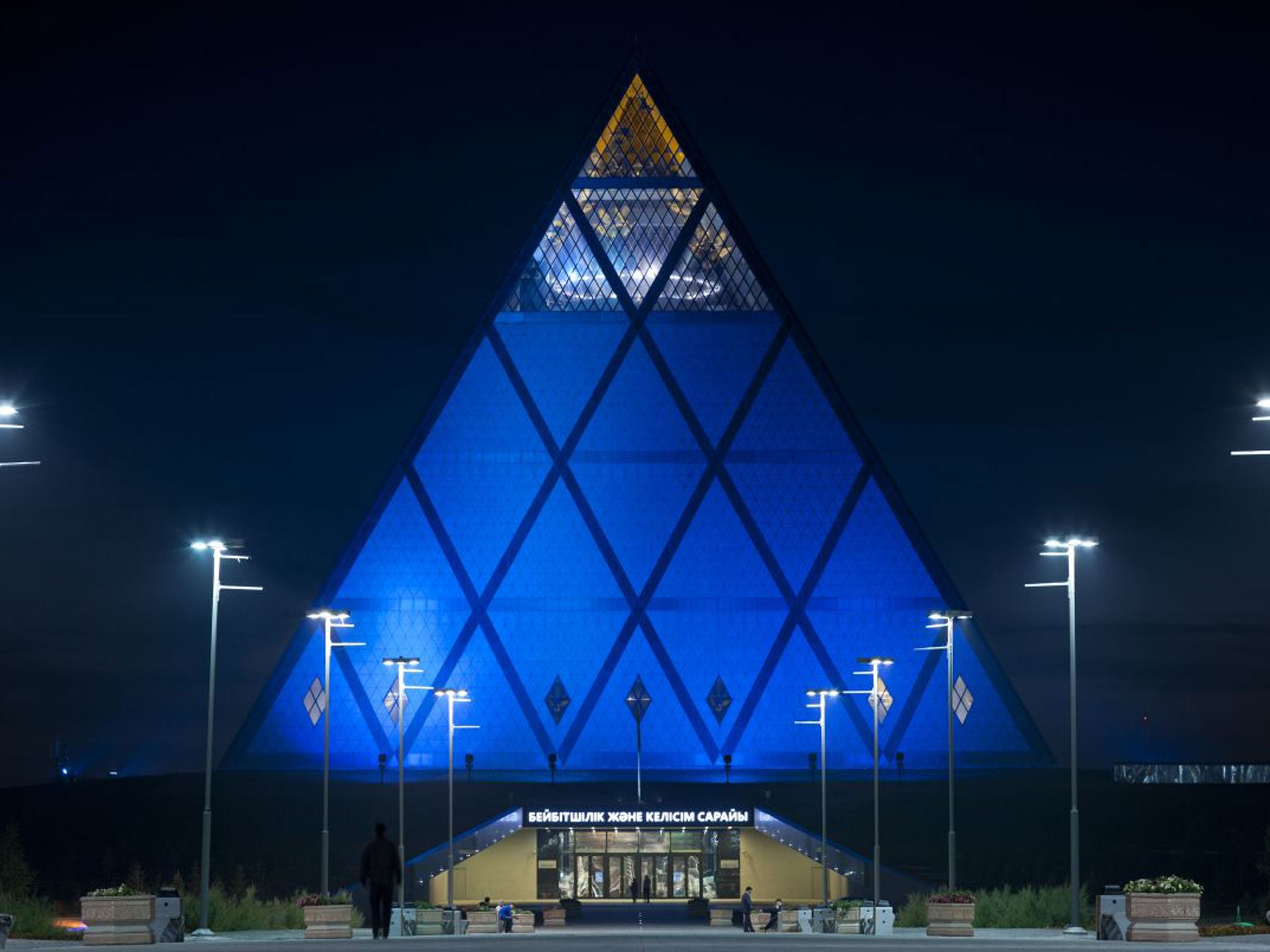Ground Zero architect: 'Building gleaming streets for despots is morally wrong'
Daniel Libeskind urges rivals to exercise ‘cultural discipline’

One of the world’s leading architects has condemned the willingness of Western designers to “build gleaming streets for despots” in an outspoken interview in which he launched an apparent attack on rivals who design buildings in countries with dire human rights records.
Daniel Libeskind, who has built a reputation working on historically and culturally sensitive projects such as the Jewish Museum in Berlin and the reconstruction of New York’s World Trade Center site, said beautiful architecture was no excuse for working with “morally questionable” clients.
“Even if they produce gleaming towers, if they are morally questionable, I’m not interested,” he said in the interview with The Architects’ Journal.
“Architects have to take responsibility for their work. I can’t separate the formal geometry from the context of who they were commissioned by and the morality of those states.
“I’m not interested in building gleaming streets for despots.”
His comments have been interpreted by some as an attack on rival Western firms that have built projects in states with poor records on human rights. Possible targets could include the two UK firms that have worked on major projects in repressive former Soviet states. Dozens of Western firms work in Gulf states where freedom remains severely restricted.
Mr Libeskind, born in Poland but now a US and Israeli citizen, said architecture should reclaim its “humanistic tradition”. He said: “It’s a cultural and a spiritual discipline and not just a mechanical one. Architecture shouldn’t be treated as if it were something expendable.” Asked what his guidance would be, he said: “Architects can sometimes be used to serve purposes which aren’t very desirable and they need to be wary of that: whether it’s fascist or Communist architecture or any architecture that is to do with sheer oppression.” Mr Libeskind has previously been critical of firms working in China, which he described as a “totalitarian regime”.
Dozens of British and American architects work in states – but not for those states – with abysmal human rights records. In Azerbaijan, ranked 162 out of 179 nations in the Press Freedom index, London-based architects Zaha Hadid have designed the Heydar Aliyev Centre – named after the former President who was succeeded by his son, Ilham.
Another British architect, Norman Foster, spearheaded the redesign of Kazakhstan’s capital, Astana. Human Rights Watch accused the former Soviet republic of arresting peaceful protesters and repressing religious and press freedoms.
This week Mace, the UK company behind the Shard, announced it would manage the development of a 1,000-metre tower in Jeddah, Saudi Arabia. The kingdom is criticised by human rights observers for its stance on women’s rights and handling of citizen demonstrators and political dissidents.
“Because architecture is so linked with power, there’s a long history of architecture that becomes associated with a certain regime,” James Pallister, The Architect Journal’s senior editor, said. “Libeskind says he can’t unpick the appearance of something from the ethical background in which it is commissioned. I think that’s quite an honourable stance.”
Dictated by design
Zaha Hadid
British-Iraqi architect Zaha Hadid’s London-based firm has designed a major new development for the centre of Baku, the capital of Azerbaijan. Human Rights Watch accuses the country of using imprisonment as a tool for political retribution.
Mace
UK-based Mace announced this week that it would manage the construction of what will be the world’s new tallest building in Saudi Arabia. The firm that built the Shard will construct the 1km-tall Kingdom Tower in Jeddah, despite on-going allegations of human rights violations in the kingdom.
Rogers Stirk Harbour + Partners
Richard Rogers’ firm won a competition to design a 52-storey headquarters for the Saudi stock exchange. Saudi Arabia is accused of stepping up arrests and trials of political dissidents inspired by revolts in neighbouring Arab countries.
Foster and Partners
The British firm, led by Lord Foster, designed London landmarks such as the Millennium Bridge and Wembley Stadium, but also built the Palace of Peace and Reconciliation and Khan Shatyr Entertainment Center in Kazakhstan – a de facto dictatorship with a dire human rights record.
Join our commenting forum
Join thought-provoking conversations, follow other Independent readers and see their replies
Comments
Bookmark popover
Removed from bookmarks